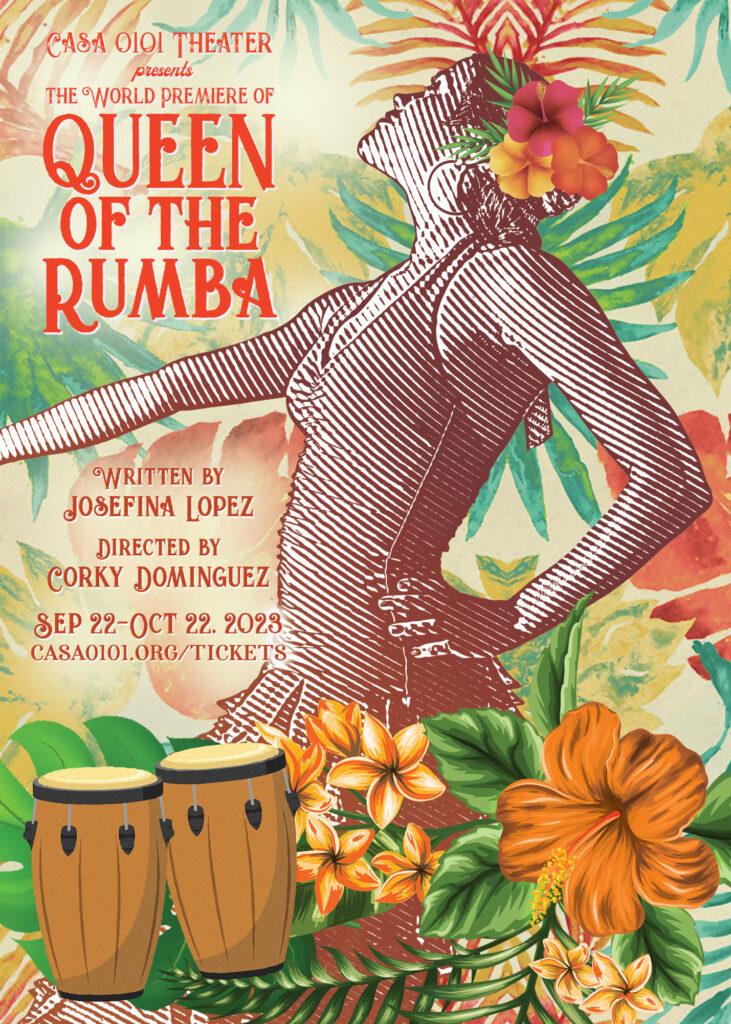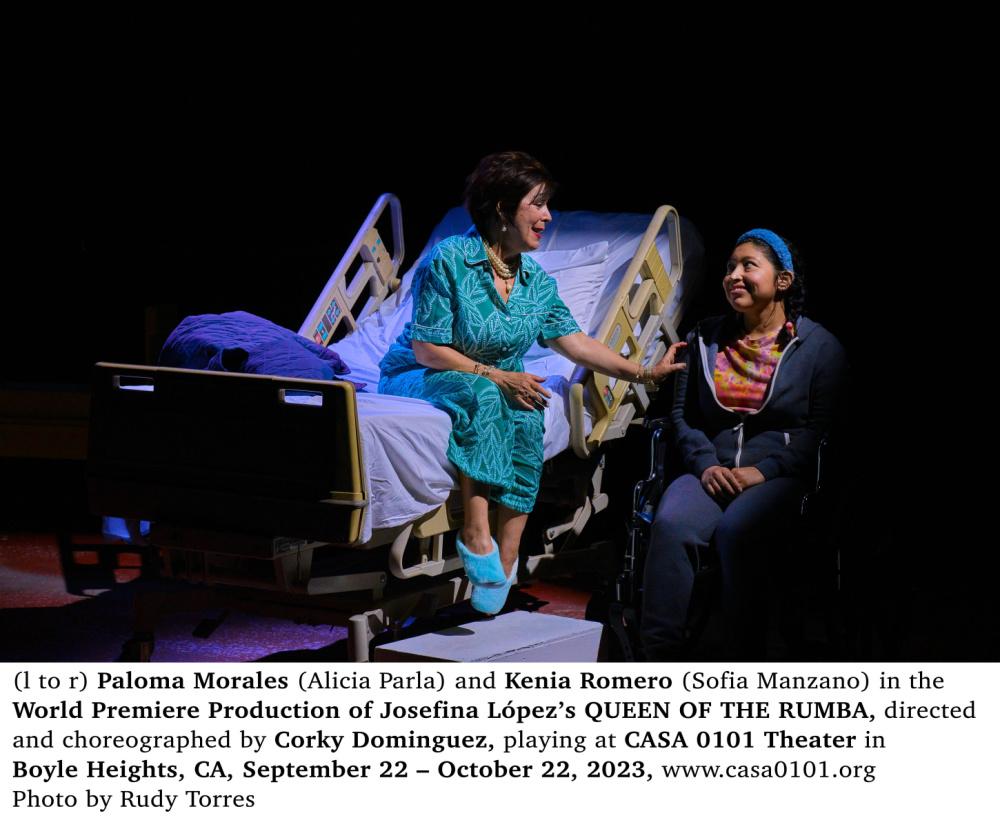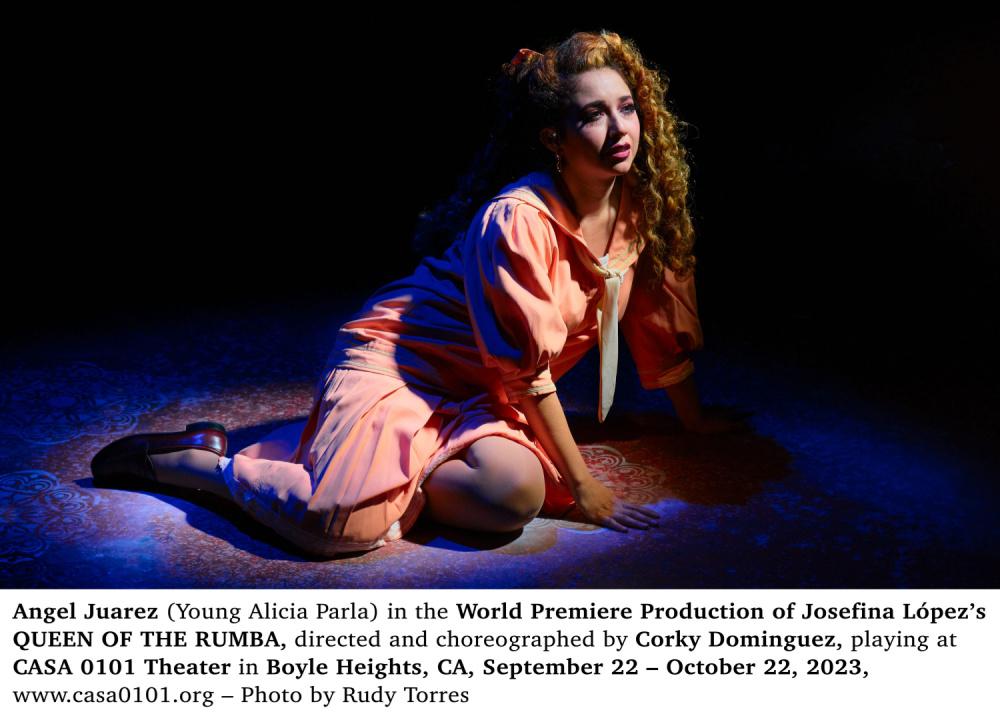Alicia Parla was born in 1914 in Havana, Cuba to a strict Cuban family. Her father was an ophthalmologist who provided her with a comfortable life. As a young teen, she dreamed of becoming a Rumba dancer, which her family was vehemently opposed to. Dancing was not considered to be a proper profession for a young lady and the Rumba was sexually suggestive.

When Cuba underwent political turbulence in the 1920s, Alicia, her mother, and her sister were sent to live in Miami while her father stayed in Havana. After Alicia graduated, they moved to New York. She got a job as a cigarette girl at a club telling her family she was a typist. At the club, she heard about an audition for a dancer and got the job working for Havana Casino owner and Cuban orchestral conductor Don Justo Angel Azpiazú.
The orchestra was set to tour in Europe, so Alicia convinced her mother to come with her as a chaperone. Her father was told they went to see the Pope in Rome.
While in Europe, she became a dancing sensation and was known as the Queen of the Rumba. Her performances drew the attention of Prince Edward of Wales who asked her to teach him the dance. In the play, Edward, played by Adam Jacobo, tries to seduce her. Famous dancer Josephine Baker also saw her perform and asked her to teach her the Rumba.
The play takes us through Alicia’s dancing years until she marries a millionaire, quits dancing, and becomes a hospital administrator.
Turning the story of Alicia Parla into a play
Josefina López, who is a Chicana playwright and founding artistic director of CASA 0101 Theater, had to write three screenplays when she was in college at UCLA. She graduated in 2002. One of those plays was Real Women Have Curves which is slated to be produced on Broadway. Another was Queen of the Rumba which is the true story of Alicia Parla.
In Queen of the Rumba, Alicia deals with sexual harassment both from co-workers and well as the Prince of Wales. I can only assume this is accurate as the Prince enjoyed dancing and was known to be a playboy.
Director Corky Dominquez has directed numerous productions at CASA 0101 and does an excellent job directing Queen of the Rumba.
Queen of the Rumba
The play opens in the Miami Hospital Cancer Ward in 1997 where terminally ill Alicia Parla, played by Paloma Morales, is being cared for. She is in her 80s and knows she is dying but still has a sense of humor and a positive attitude.

Sofia, a young terminal cancer patient, (Kenia Romero) is heard crying. Alicia begins a conversation with her and is empathetic as she is so young and has not had a chance to experience life. To comfort her, she tells her the story of how she became a dancer and Queen of the Rumba.
Morales is spunky and fun to watch as Parla. She is Cuban herself and you can tell that she is a true professional. My only issue with her performance is that some of the lines are in Spanish, which I do not speak, so I missed some of her jokes. The mostly bi-lingual audience did not and laughed hysterically. You can tell she has impeccable timing.
Angel Juarez plays young Alicia. She is a young and talented actress who grew up with the dance music of Columbia (Cumbia). She conveys a youthful naivete and is also seductive in the way she dances.

Both the young and dying Alicia’s were perfectly cast.
Vivian Marie Lamolli, who is an Afro-Latina plays the Parla family housekeeper. She dances bewitchingly with her partner played by Melvin Ward, and inspires Alicia, through her movement, to become a dancer.
The rest of the ensemble is convincing and capable in their performances.
Other notes about the play
In real life, Alicia Parla was married three times, twice divorced, and once widowed and had one child. She died of cancer in Miami in 1998.
The Rumba is music based on Afro-Cuban music traditions, particularly Abakuá, and Yuka. African slaves were brought to Cuba in the 16th century by Spanish settlers and influenced the sound which became more prominent by the 1880s. Boxes, drawers, frying pans, spoons, sticks, and other objects were used to create the rhythm. They were later replaced by Conga drums.
Rumba is now considered to be “the quintessential genre of Cuban secular music and dance.”
CASA 0101 Theater 2102 1st Street, Los Angeles, California 90033 – 323.263.7684 info@casa0101.org – Find out what is currently playing here.


Leave a Reply